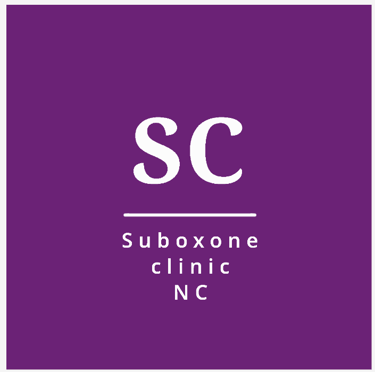The Essential Guide to Finding the Best Suboxone Treatment Centers Near Me
Introduction
Opioid addiction is a pressing public health issue that affects millions of individuals and their families worldwide. With the growing recognition of this crisis, it has become imperative to find effective and sustainable treatment solutions. Suboxone, a medication-assisted treatment (MAT) option, has proven to be highly effective in helping individuals overcome opioid dependence. This article aims to provide an in-depth guide on Suboxone treatment centers, focusing on how to find the best "suboxone treatment centers near me." We will explore the importance of these centers, the benefits of Suboxone treatment, and practical tips for choosing the right facility for your needs.
Understanding Suboxone and Its Role in Opioid Addiction Treatment
What is Suboxone?
Suboxone is a prescription medication that combines two active ingredients: buprenorphine and naloxone. Buprenorphine is a partial opioid agonist, which means it produces similar effects to opioids but to a much lesser degree, helping to reduce withdrawal symptoms and cravings. Naloxone is an opioid antagonist that blocks the effects of opioids, which helps prevent misuse. Together, these components make Suboxone a powerful tool in the treatment of opioid addiction.
How Does Suboxone Work?
Suboxone works by binding to the same receptors in the brain that opioids do. However, it activates these receptors only partially, which helps to alleviate withdrawal symptoms and reduce cravings without producing the intense high associated with opioid abuse. This allows individuals to focus on their recovery without the constant burden of managing withdrawal symptoms.
The Importance of Medication-Assisted Treatment (MAT)
MAT, including Suboxone treatment, is considered one of the most effective approaches for treating opioid addiction. It combines the use of medication with counseling and behavioral therapies to provide a comprehensive treatment plan. This holistic approach addresses both the physical and psychological aspects of addiction, increasing the chances of successful recovery.
The Benefits of Suboxone Treatment Centers
Suboxone treatment centers specialize in providing MAT for individuals struggling with opioid addiction. These centers offer several benefits that can significantly enhance the recovery process.
Professional Medical Supervision
One of the primary advantages of Suboxone treatment centers is the professional medical supervision they provide. Qualified healthcare professionals, including doctors, nurses, and addiction specialists, oversee the entire treatment process. This ensures that patients receive the appropriate dosage of Suboxone and that any side effects or complications are promptly addressed.
Comprehensive Treatment Plans
Suboxone treatment centers offer comprehensive treatment plans tailored to each patient's unique needs. These plans typically include a combination of medication management, counseling, and behavioral therapies. By addressing the physical, emotional, and psychological aspects of addiction, these centers provide a well-rounded approach to recovery.
Supportive Environment
The supportive environment of a Suboxone treatment center can be instrumental in the recovery process. Patients are surrounded by a network of professionals and peers who understand the challenges of addiction. This sense of community and support can be incredibly motivating and empowering for individuals on their recovery journey.
Access to Additional Resources
Suboxone treatment centers often provide access to additional resources that can aid in recovery. These may include educational workshops, support groups, vocational training, and assistance with housing and employment. By addressing the broader aspects of a patient's life, these centers help individuals build a solid foundation for long-term recovery.
How to Find the Best Suboxone Treatment Centers Near Me
Finding the right Suboxone treatment center is a critical step in the recovery process. Here are some practical tips to help you identify the best "suboxone treatment centers near me."
Conduct Online Research
The internet is a valuable resource for finding Suboxone treatment centers in your area. Use search engines to look up "suboxone treatment centers near me" and explore the websites of various facilities. Pay attention to the services they offer, their treatment philosophy, and any patient reviews or testimonials.
Check Accreditation and Licensing
Ensure that the treatment center you choose is accredited and licensed by relevant authorities. Accreditation by organizations such as the Commission on Accreditation of Rehabilitation Facilities (CARF) or the Joint Commission indicates that the facility meets high standards of care and safety.
Consider the Location
The location of the treatment center is an important factor to consider. Ideally, you should choose a center that is conveniently located, making it easier for you to attend appointments and participate in treatment programs. However, in some cases, seeking treatment away from your immediate environment may be beneficial to avoid triggers and distractions.
Evaluate the Staff Credentials
The qualifications and experience of the staff at a Suboxone treatment center are crucial to the quality of care you will receive. Look for centers that employ certified addiction specialists, experienced counselors, and medical professionals with expertise in MAT.
Assess the Treatment Approach
Different treatment centers may have varying approaches to Suboxone treatment. Some centers may focus more on medical management, while others may emphasize counseling and behavioral therapies. Consider your own needs and preferences when evaluating these approaches to find a center that aligns with your goals.
Inquire About Aftercare Services
Recovery from opioid addiction is a long-term process that extends beyond the initial treatment phase. Inquire about the aftercare services offered by the treatment center. These may include ongoing counseling, support groups, and relapse prevention programs to help you maintain your sobriety.
Read Patient Reviews and Testimonials
Patient reviews and testimonials can provide valuable insights into the quality of care and overall experience at a Suboxone treatment center. Look for reviews on the center's website, social media pages, and third-party review sites. Positive reviews and success stories can give you confidence in your choice.
Seek Recommendations
If you know someone who has undergone Suboxone treatment, consider asking them for recommendations. Personal referrals can be a reliable source of information and can help you find a reputable treatment center.
The Treatment Process at Suboxone Treatment Centers
Understanding the treatment process at Suboxone treatment centers can help you prepare for your journey to recovery. While the specifics may vary from one center to another, the general process typically involves the following stages:
1. Initial Assessment and Evaluation
The first step in the treatment process is an initial assessment and evaluation. During this stage, healthcare professionals will gather information about your medical history, substance use, and overall health. This evaluation helps to determine the appropriate dosage of Suboxone and develop a personalized treatment plan.
2. Induction Phase
The induction phase involves the initiation of Suboxone treatment. Under medical supervision, you will begin taking Suboxone to manage withdrawal symptoms and cravings. This phase is closely monitored to ensure the medication is effective and well-tolerated.
3. Stabilization Phase
Once the appropriate dosage of Suboxone has been established, you will enter the stabilization phase. During this phase, the focus is on maintaining the correct dosage and addressing any ongoing withdrawal symptoms or cravings. Counseling and behavioral therapies may also be introduced at this stage.
4. Maintenance Phase
The maintenance phase involves continuing Suboxone treatment at a stable dosage while actively participating in counseling and behavioral therapies. The goal is to support long-term recovery by addressing the underlying issues that contribute to addiction and developing healthy coping strategies.
5. Tapering and Discontinuation
Over time, as you progress in your recovery, your healthcare team may consider tapering the dosage of Suboxone. This process is done gradually and under medical supervision to minimize withdrawal symptoms. The ultimate goal is to discontinue the medication while maintaining sobriety and stability.
6. Aftercare and Relapse Prevention
After completing the initial treatment program, aftercare and relapse prevention become crucial. Suboxone treatment centers often offer ongoing support through counseling, support groups, and other resources to help you stay on track and avoid relapse.
The Role of Counseling and Behavioral Therapies
While Suboxone is an effective tool for managing withdrawal symptoms and cravings, counseling and behavioral therapies play a vital role in addressing the psychological aspects of addiction. These therapies help individuals understand the root causes of their addiction, develop coping strategies, and build a healthier, more fulfilling life.
Individual Counseling
Individual counseling involves one-on-one sessions with a licensed therapist or counselor. These sessions provide a safe and confidential space to explore personal issues, set goals, and work through challenges. Individual counseling can help you gain insights into your addiction and develop strategies for managing triggers and stressors.
Group Therapy
Group therapy involves sessions with a therapist and a small group of peers who are also in recovery. This setting allows you to share experiences, offer support, and learn from others who are facing similar challenges. Group therapy fosters a sense of community and can reduce feelings of isolation.
Cognitive-Behavioral Therapy (CBT)
CBT is a widely used therapeutic approach that focuses on identifying and changing negative thought patterns and behaviors. CBT can help you develop healthier ways of thinking and responding to situations, reducing the risk of relapse.
Contingency Management
Contingency management is a behavioral therapy that uses positive reinforcement to encourage sobriety and other positive behaviors. This approach may involve rewards such as vouchers or incentives for meeting treatment goals and maintaining sobriety.
Family Therapy
Family therapy involves sessions with a therapist and family members. This approach recognizes the impact of addiction on the entire family and aims to improve communication, rebuild trust, and strengthen family relationships. Family support can be a crucial component of successful recovery.
Addressing Common Concerns and Misconceptions
Despite the effectiveness of Suboxone treatment, there are several common concerns and misconceptions that may prevent individuals from seeking help. Addressing these concerns can help reduce stigma and encourage more people to pursue treatment.
Concern: Suboxone is Just Replacing One Addiction with Another
One of the most common misconceptions about Suboxone is that it simply replaces one addiction with another. However, this view overlooks the significant differences between Suboxone and opioids of abuse. Suboxone is used in a controlled, medical setting and is designed to manage withdrawal symptoms and cravings without producing the intense high associated with opioid abuse. When used as part of a comprehensive treatment plan, Suboxone can support long-term recovery and improve overall quality of life.
Concern: Suboxone Treatment is Expensive
The cost of Suboxone treatment can vary depending on factors such as location, insurance coverage, and the specific treatment center. While there may be costs associated with treatment, many insurance plans cover MAT, including Suboxone. Additionally, the long-term benefits of recovery, such as improved health and the ability to work and maintain relationships, often outweigh the initial costs.
Concern: Suboxone Treatment Centers are Inaccessible
Some individuals may believe that Suboxone treatment centers are inaccessible or that there are no centers nearby. However, the availability of MAT has been expanding, and many communities now have treatment centers or healthcare providers who offer Suboxone treatment. Online research and referrals from healthcare providers can help you find a center near you.
Concern: Fear of Stigma and Judgment
Fear of stigma and judgment can be a significant barrier to seeking treatment. It's important to remember that addiction is a medical condition, not a moral failing. Suboxone treatment centers are staffed by compassionate professionals who understand the challenges of addiction and are dedicated to providing nonjudgmental, supportive care.
Conclusion
Suboxone treatment centers play a crucial role in helping individuals overcome opioid addiction and reclaim their lives. By providing medication-assisted treatment, counseling, and comprehensive support, these centers offer a pathway to recovery that addresses both the physical and psychological aspects of addiction. If you or a loved one is struggling with opioid addiction, finding the best "suboxone treatment centers near me" can be the first step towards a healthier, more fulfilling future. Remember, recovery is possible, and help is available. Take the first step today and explore the options for Suboxone treatment in your area.


